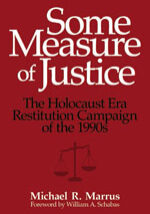In 701 B.C. the Assyrian empire was in its ascendancy. It had already vanquished the kingdom of Israel to the north including the capital at Samaria. It then prepared an assault on Judah and its capital at Jerusalem.
But in one of those significant events that changes the course of world history, Assyria was repelled. Jerusalem was saved until 586 B.C. when the Babylonians sacked the city, forcing its leadership class into exile.
Henry Aubin, in a major feat of scholarship, determines that Jerusalem was aided by a Kushite army from Africa which had marched northeast from the Nile valley. While the Bible attributes the Assyrian retreat to an angel and secular commentators cite pestilence, Aubin, in a meticulously documented work, demonstrates that an alliance with the African nation of Kush bolstered Jerusalem’s defences.
Kush, also known as Nubia, was located in what is now southern Egypt and northern Sudan. A monarchy that existed for more than 1000 years, from 900 B.C. to A.D. 350, Kushites held sway over Egypt from 712 B.C. to about 660 B.C. Of Egypt’s 31 dynasties, this, the 25th Dynasty, is the only one that all scholars agree, was black.
The commander of the Kushite expeditionary force was Taharqa (or as the Bible calls him Tirhakah). This Kushite prince, who had his own interests in halting Assyrian expansion, likely caught the aggressors by surprise as they prepared their siege of Jerusalem.
Aubin offers a thrilling military history and a stirring political analysis of the ancient world. He also sees the event as influential over the centuries.
The Kushite rescue of the Hebrew kingdom of Judah enabled the fragile, war-ravaged state to endure, to nurse itself back to economic and demographic health, and allowed the Hebrew religion, Yahwism, to evolve within the next several centuries into Judaism. Thus emerged the monotheistic trunk supporting Christianity and Islam.

“Michael Marrus of the University of Toronto sets forth a carefully argued account of those historic lawsuits in Some Measure of Justice. A distinguished scholar of the Holocaust, Marrus approaches the subject as a historian with a special interest in law.”
National Post
Michael Marrus is a distinguished scholar of the Holocaust and former Dean of Graduate Studies at the University of Toronto. He is Governor of the University of Toronto. Dr. Marrus has lectured widely in North America, Europe, Israel, and South Africa.
His recent completion of a Master of Law degree at the University of Toronto and a seminar he organized on apologies for historic wrongs helped shape some ideas in this book. He’s the author of, among other books: Vichy France and the Jews (co-authored with Robert Paxton), The Unwanted: European Refugees in the Twentieth Century, The Holocaust in History, Mr. Sam: A Biography of Samuel Bronfman and The Nuremberg War Crimes Trial, 1945-46: A Documentary History. His books have appeared in French, Spanish, Portuguese, German, Hebrew, Polish, and Japanese editions.
Dr. Marrus is also a Member of the Order of Canada.
